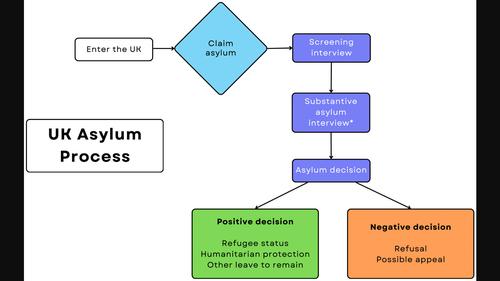Everyday digital dis/connection: Locating slow violence in (non)encounters with the UK asylum state
IF 3.6
1区 社会学
Q1 GEOGRAPHY
引用次数: 0
Abstract
Encounters with, within and between digital technologies have become characteristic of life in the contemporary moment. This is, often, no different for displaced individuals seeking asylum across European states. Smartphones have become part of the everyday ‘doing’ of life for individuals governed through asylum systems which now includes routinely encountering the state. Whilst smartphones are commonly said to offer the promised affordances of increased connection or communication, this paper aims to explore how everyday encounters with the UK asylum state fall short of these imagined expectations. In its place, the paper identifies how a series of ongoing (non)encounters—encounters that fail to manifest in expected ways; characterised by pauses, delays or voids—become characteristic of the everyday experience of being a digitally connected asylum seeker in the UK. Drawing upon a year-long ethnographic research project with people actively seeking asylum in the UK between 2022 and 2023, this paper thus explores how the increased uptake of smartphone affordances within the UK asylum system contributes to the ongoing administration of state slow violence: experienced as exhaustion through everyday digital (non)encounters. Developing the concept of the (non)encounter for geographic research, this paper outlines how forms of dis/connection become characteristic of the state encounter for asylum-seeking individuals. These modes of dis/connection are traced as slow violence along the contours of neoliberalisation and hostile assemblages of asylum governance within the UK context.

日常数字隔离/连接:在与英国庇护国家的(非)接触中定位缓慢暴力
与数字技术相遇、在数字技术中相遇以及在数字技术之间相遇已成为当代生活的特征。对于在欧洲各国寻求庇护的流离失所者来说,情况往往也是如此。智能手机已成为受庇护系统管理的个人日常 "生活 "的一部分,其中包括与国家的例行接触。虽然智能手机通常被认为能提供更多的联系或交流,但本文旨在探讨与英国庇护制度的日常接触如何与这些想象的期望相去甚远。取而代之的是,本文确定了一系列持续的(非)邂逅--未能以预期方式体现的邂逅;以停顿、延迟或空洞为特征的邂逅--如何成为英国数字连接寻求庇护者日常体验的特征。本文通过对 2022 年至 2023 年期间在英国积极寻求庇护者进行的为期一年的人种学研究项目,探讨了英国庇护系统对智能手机功能的更多使用如何促进了正在进行的国家缓慢暴力管理:通过日常数字(非)邂逅体验到的疲惫。本文发展了地理研究中的(非)相遇概念,概述了对寻求庇护的个人而言,断开/连接的形式如何成为国家相遇的特征。沿着新自由主义化的轮廓和英国背景下庇护治理的敌对组合,这些断开/连接的模式被追溯为缓慢的暴力。
本文章由计算机程序翻译,如有差异,请以英文原文为准。
求助全文
约1分钟内获得全文
求助全文
来源期刊
CiteScore
7.00
自引率
9.10%
发文量
72
期刊介绍:
Transactions is one of the foremost international journals of geographical research. It publishes the very best scholarship from around the world and across the whole spectrum of research in the discipline. In particular, the distinctive role of the journal is to: • Publish "landmark· articles that make a major theoretical, conceptual or empirical contribution to the advancement of geography as an academic discipline. • Stimulate and shape research agendas in human and physical geography. • Publish articles, "Boundary crossing" essays and commentaries that are international and interdisciplinary in their scope and content.

 求助内容:
求助内容: 应助结果提醒方式:
应助结果提醒方式:


